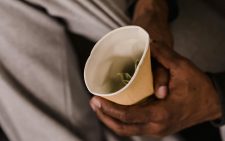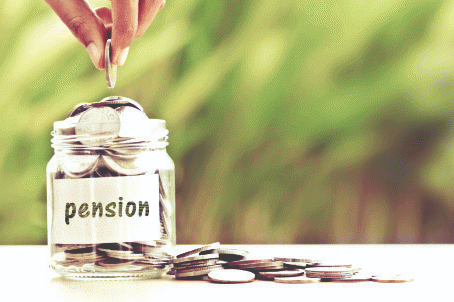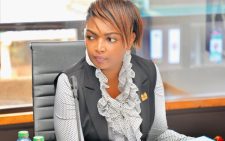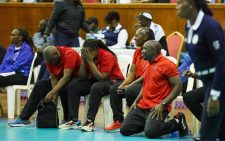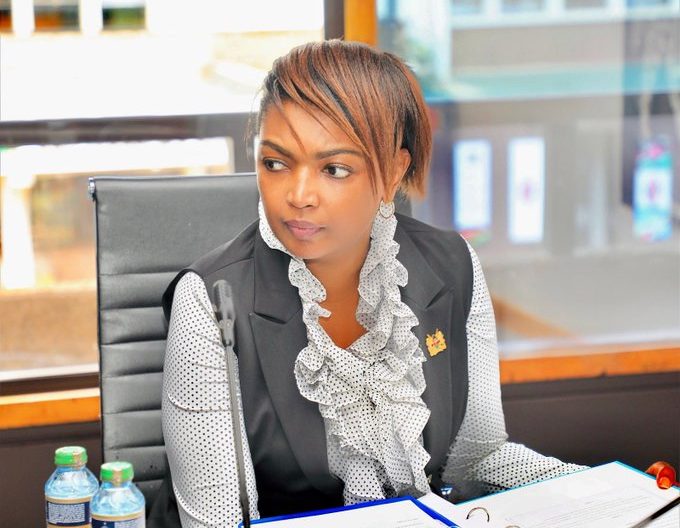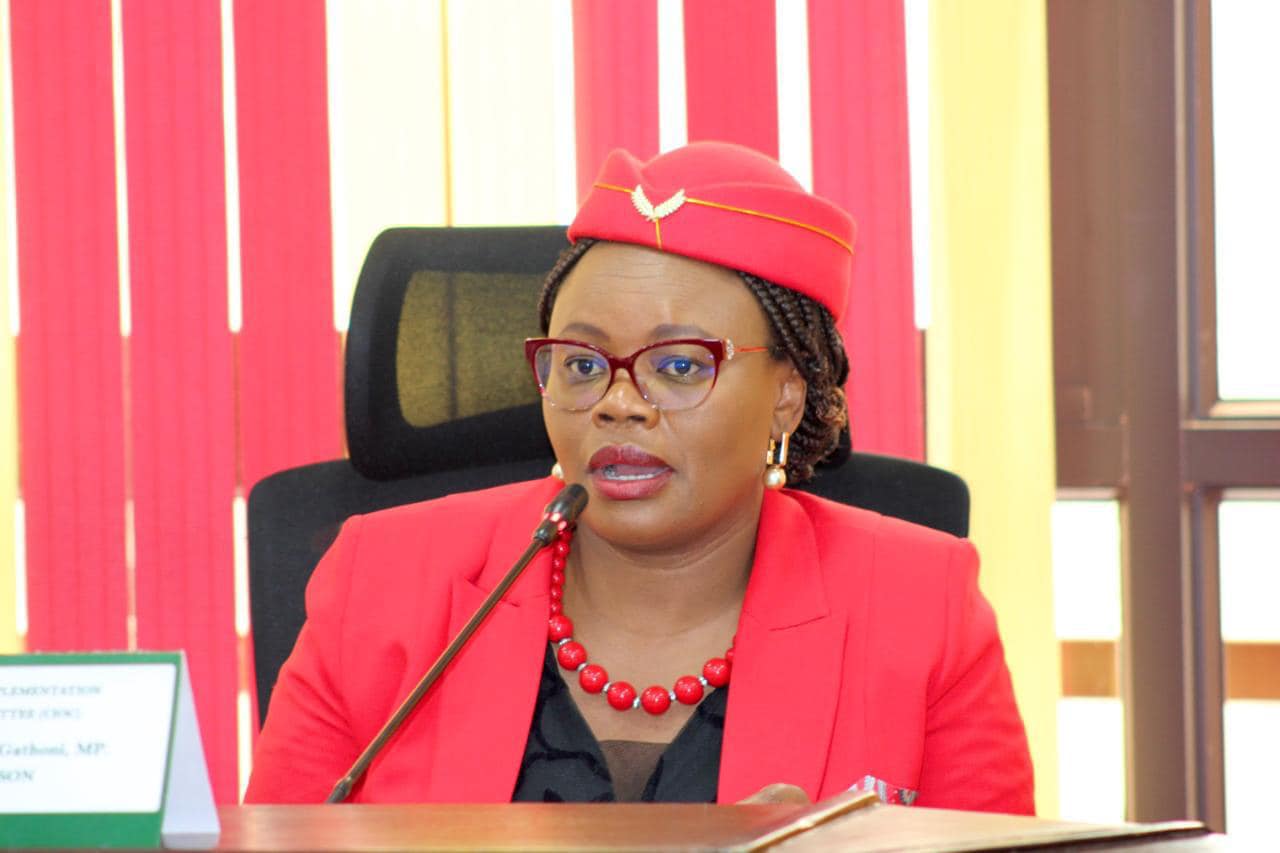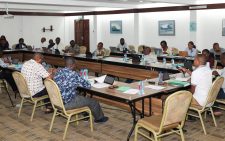How women and girls fight period poverty with pad banks
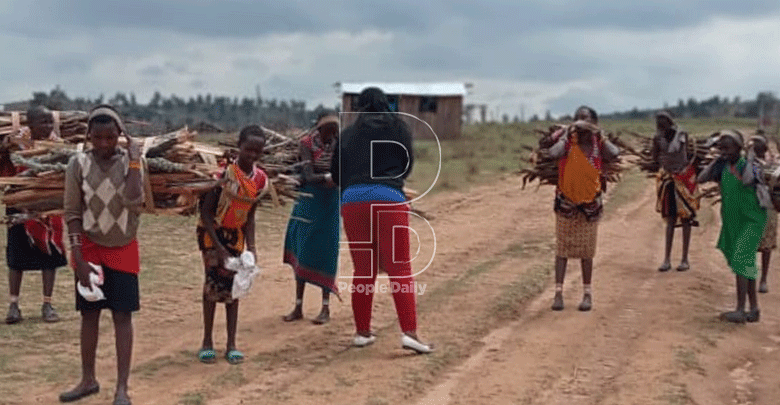
It is midday and a windy breeze mixed with fresh cow dung smell from homesteads fills the hot air in Ledero village, Samburu county. Hellen Cherono Lekaldero’s homestead is buzzing, the quiet chatter of conversation barely discernible over the thud of sanitary pads inside boxes.
In the arid and semi-arid village, women work diligently. Lekaldero is packing sanitary pads inside a brown paper bag ready to start the day.
She is among six women distributing the pads to women at water points, in homesteads and along the road in Ledero, Lchoro, Naing’olie, Ng’ari, Leyirr and Naijirijir villages.
In the county, conversation around menstrual health is widely considered a taboo, to the detriment of many girls and women.
“It is not something that is talked about in the open. Girls, therefore, confide in themselves and this ends up affecting them,” she explains.
This cycle of menstrual taboo is deeply penetrated in marriages, where women find it difficult to confide in their husbands about it.
However, like other communities in Kenya, a groundswell of attention from non-profits, development organisations and government means there is a growing consensus: girls should have access to the products they need without shame or secrecy.
Lekaldero and a host of other women in Samburu East have devised a new way of reaching the women with the pads at their convenience.
“We are a pastoralist community and most women venture deep in the forest to look for pasture for their goats and sheep, only to come home late in the evening.
In the morning, they are milking goats or taking care of the homestead. They are not able to come pick the pads.
I now take the pads to their homes, or meet them on the road with livestock or at water points where they come to wash clothes or bring their animals to drink water,” she says.
The only water pump serving Ledero community got spoilt a few weeks ago, and women now have to travel another three kilometres to Naijirijir water point, Morijoi Prison Water Pump to access the commodity, says Lekaldero. The water costs Sh20 per jerrican.
Dignified and unafraid
She explains that the women and girls feel comfortable picking pads at the water points because there, nobody is around to ridicule them.
“They conceal the pads in the clothes they have come to wash, making it easy for them to pick their reserves,” notes Lekaldero.
At the water points, she serves shanga women (unlearned married women who engage in bead-making, taking care of animals and other household chores), shanga girls (those yet to be married, but have not gone to school) and school-going girls.
On this day, she is lucky to meet Claudia Naanyu, 28, at Naijirijir water point. On her way, she meets and gives period products to women coming from the forest with firewood and those taking animals out to the grazing fields.
Naanyu narrates through a translator, “When I got my first monthly period (Itoodolishe in Samburu), I was afraid I was dying.
I stuffed bits of clothes and cotton inside myself to try stem the bleeding.”
Then aged 11, she did not tell her parents what was happening.
Naanyu used to spend her day terrified, blood leaking out. To avoid ridicule from her age mates, she became a loner.
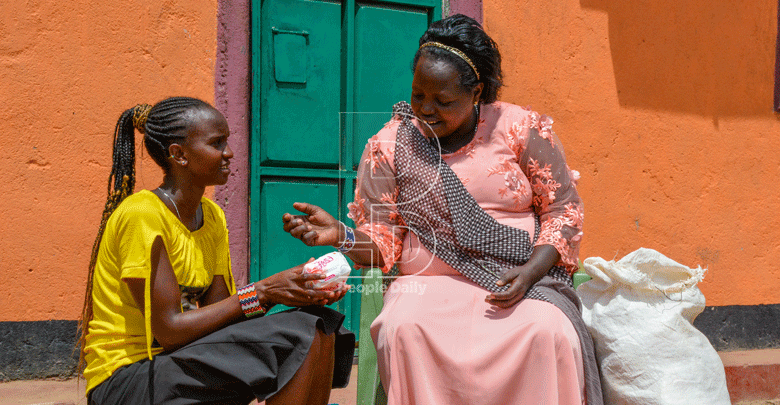
“At first I was scared, I didn’t know what it was. I thought I had hurt myself,” explains Naanyu as she picks her sanitary pack for the month.
The rations are part of pad banks organised by a non-profit Bright Future Foundation —a Samburu based community based organisation that champions education, sexual health and rights of women and girls.
But today, little trace is left of that fear. Naanyu, who currently has access to free sanitary pads and a stress-free menstrual hygiene. But how does a pad bank work?
A trusted woman in the community keeps the dignity kits (which contains two packets of sanitary pads and one panty), which she hands over to girls and women who come for them.
“We give them two packets with eight pads inside each to last them for one month. We get about 10-15 girls and women every month who come for them,” continues Lekaldero.
“Menstruation happens to all girls. I am no longer embarrassed,” Naanyu explains pointing at the picturesque hills as far as the eye can see where she joins other women to look for pasture and water for her goats.
In Samburu, the price of sanitary pads and tampons ranges between Sh80-100.
“Not every woman or girl can afford this. This is where we come in to help,” says Foustine Naimasiai co-founder Bright Future Foundations, a not-for-profit community based organisation founded in 2015.
Naimasiai explains that the organisation seeks to have pad banks in various locations in the county where women and girls can easily access dignitary towels.
It all started out when some girls upon finishing their education decided to lend a hand in the community by encouraging younger girls and women on education, sexual health, youth empowerment and entrepreneurship.
“We didn’t have any means of transport then. We would borrow our friend’s car and visit schools in different communities and talk to girls about sexual health, and the women on how they could benefit from selling beads, and table banking,” explains Naimasiai, who sudied law at the Catholic University of Eastern Africa.
Her background thrust her into championing women and girls’ health rights and education. More than 500 girls and women have benefited from the pad banks.
In Kenya, about 13 in 20 Kenyan girls stay out of school every month due to period poverty —the lack of access to high quality menstrual products.
“Several years back we used to get supplies from churches, well-wishers,” Lekaldero says adding that transport and infrastructure still remains a challenge in reaching the needy.
But period poverty remains a menace and is deep rooted, dating back several years, attests 45-year-old Jestina Lesordonkera, a resident of Ledero-Ndikir village.
“During our times, we did not have pads. During our moon days (period) we used worn-out blankets.
But those scraps of fabric were irritating, unhealthy and would leak and soil our clothes,” she narrates through a translator of the ad hoc alternatives.
Lesordonkera, a mother of four, who now comes for her sanitary kits at Ledero Level 2 Dispensary, says a lot has changed.
“I can now sell my beads at the market, do my household chores and farm without any worries.
I also pick the pads for my two girls every time I come to get my ration at the dispensary,” says Lesordonkera, who makes beads on order and sells at Sh400-Sh1,000.
Interestingly, the women and girls now come to the dispensary with a pretext of being sick to pick sanitary pads.
“In the community, the men control the flow of money. Women and girls who do not have courage to ask for money to buy pads, now hide under the pretext of being sick to come and pick them up,” explains Jane Letoole, the nursing officer in-charge at Ledero Dispensary adding that mothers who come for delivery services too do not have these essential products.
The nursing officer adds that, depending on the season and disease outbreaks, the facility can attend to between 40-60 patients a day.
The top infections registered at the facility include upper respiratory tract and eye infections.
Letoole notes that cases of urinary tract infections as a result of using rags, or blankets during periods was high before community sensitisation on menstrual hygiene.
“We are still getting at least three to five infections as a result of girls or women using the rags,” says Letoole.
Vital talks
For Esther Naipalei, 19, who started getting free sanitary towels while in class five at Ledero Primary School from the organisation; the road to menstrual hygiene has been a smooth one.
“I was taken through motivational talks on reproductive health and how to use sanitary pads. I thank God, since then I have not missed school like other girls,” she says.
But until then, she narrates, “I used to put on two panties and add another biker when I was approaching my periods. And getting out of the house too was hectic.”
She has since become an ambassador of the correct use of pads in the village.
“I sensitise young girls on how to use the pads” says Naipalei, who sat for her KCSE last year at Moi Samburu Girls High School.
Managing menstrual hygiene can be further complicated by poor access to water and other sanitation amenities. In drought stricken villages of Samburu, it is more complicated.
According to a 2020 report by Plan International titled, Periods in a Pandemic: Menstrual Hygiene Management in the Time Of Covid-19 Pandemic, 51 per cent of respondents reported that reduced access and availability of clean water to help manage periods worsened women and girls’ situation.
The report, an online survey conducted between May 11 to May 17, 2020 and attracted 61 responses from professionals working in the Water, Sanitation and Hygiene (WASH) in 24 countries, also found that 68 per cent agreed that restricting access to WASH facilities to help change, clean and dispose of sanitary products was also a major challenge.
“For the period when schools were closed, most school going-girls suffered,” says Lekaldero.
The foundation recently received a Sh2.9 million donation from Absa Bank’s Wall of Possibility competition to further its activities across the county.
“With this donation, we want to build permanent pad banks in most villages across the county to enable us have a constant flow of dignity kits girls and women can access throughout,” says Naimasiai, noting that although she never lacked dignity kits growing up, her childhood friends’ predicament during their periods gave her the push to do something.
“We also seek to build capacity of our women to learn how to make reusable sanitary towels for themselves.
This will not only solve the sanitary towels issue, but also economically empower them and be a source of income for them,” she adds.
For Naanyu and Naipalei menstrual hygiene awareness and education is what has kept them from shame.
“We need to reduce period stigma so that women and girls can feel comfortable,” says Naipalei.
“That way, every woman or girl gets included and not miss school because of monthly periods.”
